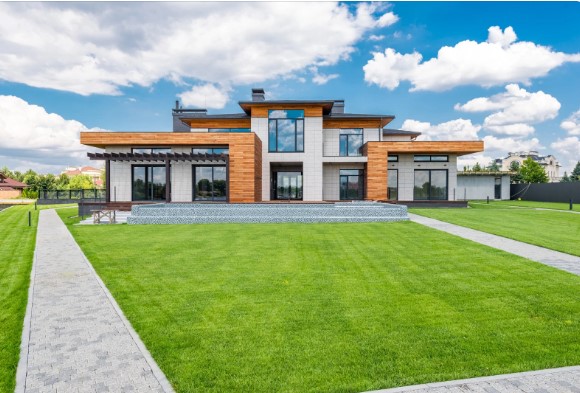2023

What does House Settling Mean?
 Have you ever heard of house settling and wondered what it is? It’s a phenomenon that occurs over time in all types of homes, though the natural aging process appears to have an influence. House settling generally refers to structural changes resulting from soil conditions underneath the home or surrounding it, causing subtle shifts and movements in walls, floors, doors, windows and more. You may even start noticing variations like cracks in your foundation or interior drywall steel beams starting to sag – minimal changes that hardly warrant any repairs yet cause alarm nonetheless. Knowing what causes these small transformations can help protect your home against further damage down the road while also making sure no harm befalls those residing within its four walls.
Have you ever heard of house settling and wondered what it is? It’s a phenomenon that occurs over time in all types of homes, though the natural aging process appears to have an influence. House settling generally refers to structural changes resulting from soil conditions underneath the home or surrounding it, causing subtle shifts and movements in walls, floors, doors, windows and more. You may even start noticing variations like cracks in your foundation or interior drywall steel beams starting to sag – minimal changes that hardly warrant any repairs yet cause alarm nonetheless. Knowing what causes these small transformations can help protect your home against further damage down the road while also making sure no harm befalls those residing within its four walls.
Definition of house settling – when the foundation of a home shifts or settles after construction
A house is a significant investment for most people, and it’s important to understand the various issues that can arise over time. One common problem is house settling, which refers to the gradual shifting or sinking of a home’s foundation. This can occur due to a variety of factors, such as soil composition, changes in moisture levels, or even the natural settling process that occurs as a house ages. While some settling is normal and expected, excessive settling can lead to a wide range of issues, from cosmetic damage like cracks in the walls to more serious structural problems that can compromise the safety and stability of the home. By understanding what house settling is and how to identify the signs of trouble, homeowners can take steps to protect their investment and ensure that their home remains a safe and comfortable place to live for years to come.
Causes of house settling
As homeowners, we often take for granted that our houses will remain sturdy and stable. However, over time, it’s not uncommon for homes to experience some settling. There are several factors that can contribute to this, such as climate change, changes in moisture levels, and soil composition. As the earth’s climate continues to shift, so do the conditions surrounding our homes. Excessive moisture in the soil can lead to swelling, while a lack of moisture can cause the soil to settle and compact. Additionally, the type of soil your foundation is built on can also play a significant role in how much settling your home experiences. While settling is a natural occurrence, it’s important to monitor for any signs of significant movement and address the underlying causes to ensure the safety and longevity of your home.
Signs of settling problem
Your home is an investment that you want to last for years to come. However, if you notice cracks in your walls or floors, uneven flooring, or doors sticking, those can be signs of a settling problem that could cause serious damage. Unfortunately, settling can occur in any type of home at any age. Whether a result of poor soil conditions or foundation issues, settling can lead to structural problems if not addressed promptly. Don’t ignore these warning signs. Contact a professional to assess the situation and offer solutions to ensure your home remains safe and secure.
Types of repairs needed to fix a settling problem
When it comes to fixing a settling problem, there are several types of repairs that may be necessary to ensure that the problem is fully addressed.
Underpinning involves the installation of new supports beneath the foundation to prevent any further settling from occurring, while mudjacking involves using a cement mixture to raise the foundation back to its original position.
Other potential repairs may include installing a drainage system to redirect water away from the foundation, or repairing cracks in the foundation itself. Ultimately, the specific repairs needed will depend on the severity and underlying cause of the settling problem. levelprofoundationrepair.com explains more repair methods that are being used by the modern day contractors.
Tips to avoid house settling
As a homeowner, it’s important to take preventive measures to avoid house settling. One key factor to consider is the drainage around the foundation of your home. It’s crucial to ensure that water is properly directed away from the foundation to prevent soil erosion and potential foundation damage. Other helpful tips include regular inspections to identify any potential issues and prompt repairs, as well as maintaining consistent moisture levels in the soil surrounding the foundation. Taking the time to implement these preventative measures can save you from costly and stressful foundation repairs down the line.
How to estimate the cost of repairs for your home due to settling
Owning a home is a dream come true for many, but it comes with its fair share of responsibilities and challenges. One of those challenges is dealing with settling, which can cause cracks, gaps, and other issues that need to be repaired. Estimating the cost of these repairs can seem daunting, but it’s important to take the time to do it right. Variables like the size of your home, the severity of the settling, and the cost of labor and materials can all impact the final cost. By seeking out estimates from qualified contractors, doing thorough research, and being realistic about your expectations, you can get a better idea of what it will cost to make your home stable and secure. Don’t let settling get you down – with a little planning and effort, you can tackle this challenge and keep your home in top condition for years to come.
So, house settling can impact homeowners in many ways and it’s important to be aware of the causes, signs, and ways to mitigate the problem. It’s also important to understand the types of repairs that may be needed to fix a house settlement issue, as well as how much they will cost. All of these details allow you to make informed decisions about your home’s foundation and protect your family from the damaging effects of settling. Homeowners can rest assured that with some planning and forethought, they can prevent or minimize settling problems in their homes before they become major issues.